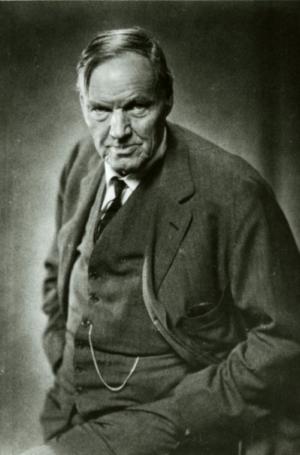 SKC Films Library |
| SKC Films Library >> Law >> Law of the United States >> Biography |
| Clarence Darrow attorney who defended labor, war protestors, convicted killers, and a teacher of evolution
Clarence Seward Darrow was born near Kinsman, Ohio, on April 18, 1857. After studying at Allegheny College and the University of Michigan Law School, he worked in a Youngstown law office. He was admitted to the Ohio Bar in 1878, after which he practiced in Andover and Ashtabula before moving to Chicago, in 1887. After two years of private practice, he was appointed City Corporation Counsel. In 1894 he became general counsel for the Chicago and Northwestern Railroad. Labor Lawyer Darrow was well on his way to being a successful corporate attorney when, in 1895, he resigned in order to defend Eugene V. Debs, president of the American Railway Union, and other union leaders against federal charges related to the Pullman Strike of 1894. Although he ultimately lost the case, he went on to become one of labor's most championed advocates. In the Woodworkers' Conspiracy Case (Oshkosh, Wisconsin, 1898), Darrow successfully defended a union organizer charged with conspiracy after organizing a strike at a major sash-and-door factory in Oshkosh, Wisconsin. The case established the legal right of a union to strike without being liable to criminal indictment. In 1902, as an advocate for the United Mine Workers, he spoke before the commission called by President Theodore Roosevelt to settle the Pennsylvania Anthracite Coal Strike. His presentation focused on the terrible conditions in the mines and company stores, and brought the miners much public sympathy. In his next major case, Darrow served as the principal counsel for William D. Haywood and other members of the Western Federation of Miners, who were accused of murdering former Idaho Governor Frank Steuenberg. In this case, which was heard in Boise from 1905 to 1907, he documented the conspiracy between industry and local government to victimize workers. Haywood and his co-defendants were ultimately acquitted. In his last major labor case, Darrow entered guilty pleas for James B. and John J. McNamara, who were charged with the bombing of the Los Angles Times building (1911), in which 21 people were killed. Not only was Darrow ostracized by organized labor for pleading the men guilty, he then found himself being charged with a crime. He was twice tried and acquitted of attempting to bribe jurors (1912 and 1913). Criminal Lawyer Unable to secure any more major labor cases, Darrow returned to Chicago, where he slowly built a new private practice. After World War I began, he defended war protestors charged with violating state sedition laws, and once again began attracting national attention. A staunch opponent of capital punishment, Darrow served as chief defense counsel for Nathan Leopold and Richard Loeb, who were charged with the first-degree murder of 14-year-old Robert Franks (Chicago, 1924). Although the evidence against both men was fairly strong, and both had confessed to killing the boy simply for thrills, Darrow argued that the men should be spared from the death penalty. After sitting through Darrow's very long and very moving presentation, the trial judge ultimately sentenced both men to life in prison. Scopes Trial In 1925, Darrow agreed to defend Dayton, Tennessee, high school teacher John T. Scopes, who had been charged with violating a Tennessee State law by teaching evolution. Another celebrated lawyer, William Jennings Bryan, agreed to prosecute the case. Neither man charged a fee for their services. The case attracted national attention and was covered by every major newspaper and radio news network in the country, as well as by numerous minor news services. Although Darrow conceded that Scopes had indeed violated the law, he argued that the law itself was blatantly unconstitutional. He also made religion an issue, and even challenged Bryan to defend the Bible, as a witness for the defense! In the end, Darrow ultimately asked the jury to go ahead and find Scopes guilty so the case could be appealed to the Tennessee Supreme Court. The jury complied, and Scopes was ultimately fined $100. The fine was paid, and the law was ultimately repealed. Sweet Case One of Darrow's last major cases was heard in Detroit in 1926. The case began when a white mob attempted to drive a black family out of their home in a white neighborhood. A white man was killed in the struggle, and the eleven blacks in the house, including Dr. Henry Sweet, were arrested and charged with murder. Speaking before an all-white jury, Darrow said: "I insist that there is nothing but prejudice in this case; that if it was reversed and eleven white men had shot and killed a black man while protecting their homes and their lives against a mob of blacks, nobody would have dreamed of having them indicted. They would have been given medals instead..." All eleven defendants were ultimately acquitted. Darrow remained a strong force in the courtroom until shortly before his death, which came in Chicago on March 13, 1938. His Writings A Persian Pearl and Other Essays
(1899)
WEB SOURCE SEE ALSO |
| SKC Films Library >> Law >> Law of the United States >> Biography This page was last updated on 12/20/2017. |
